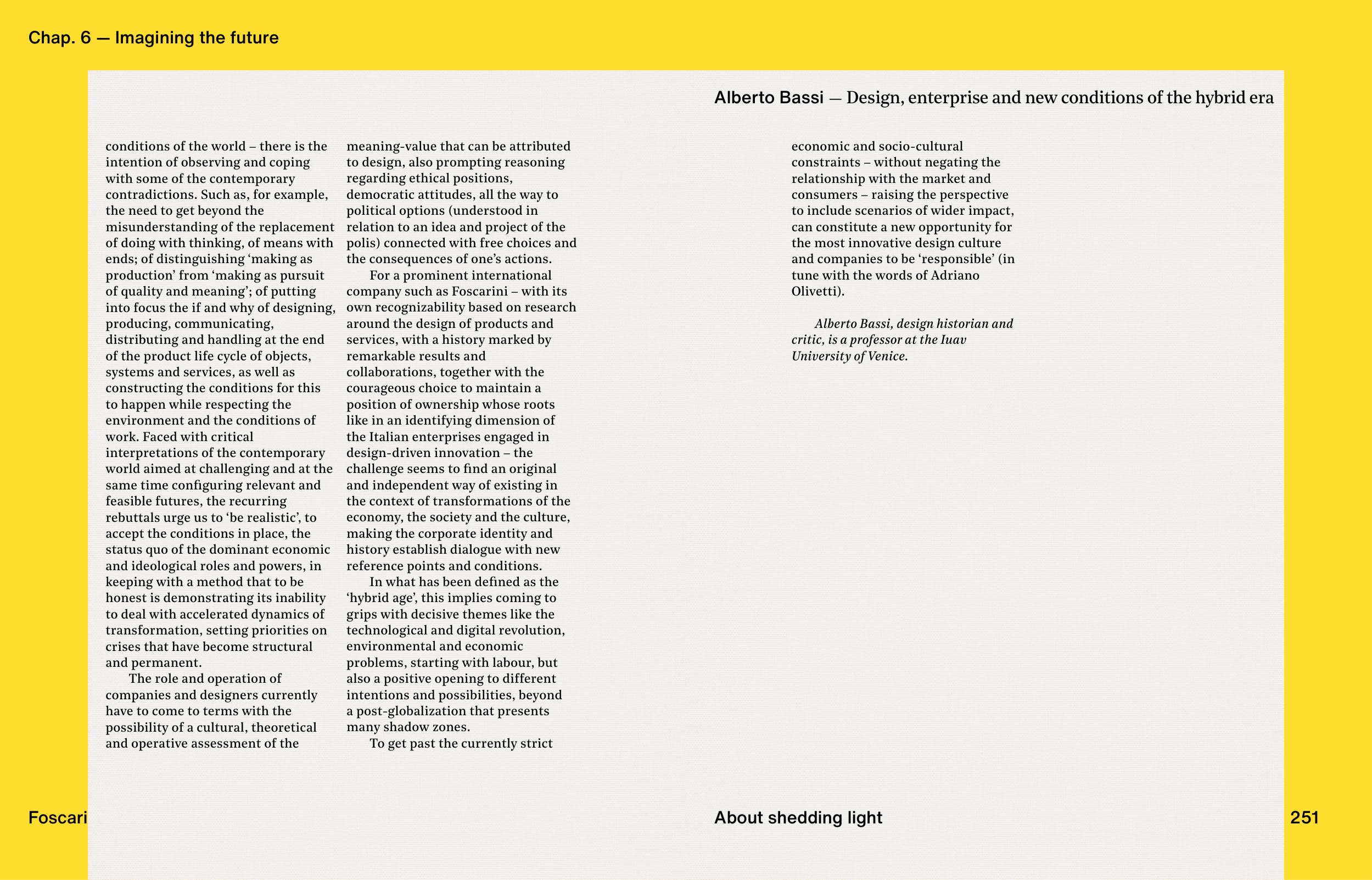251
Foscarini
conditions of the world – there is the
intention of observing and coping
with some of the contemporary
contradictions. Such as, for example,
the need to get beyond the
misunderstanding of the replacement
of doing with thinking, of means with
ends; of distinguishing ‘making as
production’ from ‘making as pursuit
of quality and meaning’; of putting
into focus the if and why of designing,
producing, communicating,
distributing and handling at the end
of the product life cycle of objects,
systems and services, as well as
constructing the conditions for this
to happen while respecting the
environment and the conditions of
work. Faced with critical
interpretations of the contemporary
world aimed at challenging and at the
same time confi guring relevant and
feasible futures, the recurring
rebuttals urge us to ‘be realistic’, to
accept the conditions in place, the
status quo of the dominant economic
and ideological roles and powers, in
keeping with a method that to be
honest is demonstrating its inability
to deal with accelerated dynamics of
transformation, setting priorities on
crises that have become structural
and permanent.
The role and operation of
companies and designers currently
have to come to terms with the
possibility of a cultural, theoretical
and operative assessment of the
meaning-value that can be attributed
to design, also prompting reasoning
regarding ethical positions,
democratic attitudes, all the way to
political options (understood in
relation to an idea and project of the
polis) connected with free choices and
the consequences of one’s actions.
For a prominent international
company such as Foscarini – with its
own recognizability based on research
around the design of products and
services, with a history marked by
remarkable results and
collaborations, together with the
courageous choice to maintain a
position of ownership whose roots
like in an identifying dimension of
the Italian enterprises engaged in
design-driven innovation – the
challenge seems to fi nd an original
and independent way of existing in
the context of transformations of the
economy, the society and the culture,
making the corporate identity and
history establish dialogue with new
reference points and conditions.
In what has been defi ned as the
‘hybrid age’, this implies coming to
grips with decisive themes like the
technological and digital revolution,
environmental and economic
problems, starting with labour, but
also a positive opening to different
intentions and possibilities, beyond
a post-globalization that presents
many shadow zones.
To get past the currently strict
Chap. 6 — Imagining the future
economic and socio-cultural
constraints – without negating the
relationship with the market and
consumers – raising the perspective
to include scenarios of wider impact,
can constitute a new opportunity for
the most innovative design culture
and companies to be ‘responsible’ (in
tune with the words of Adriano
Olivetti).
Alberto Bassi, design historian and
critic, is a professor at the Iuav
University of Venice.
Alberto Bassi — Design, enterprise and new conditions of the hybrid era
About shedding light
251


